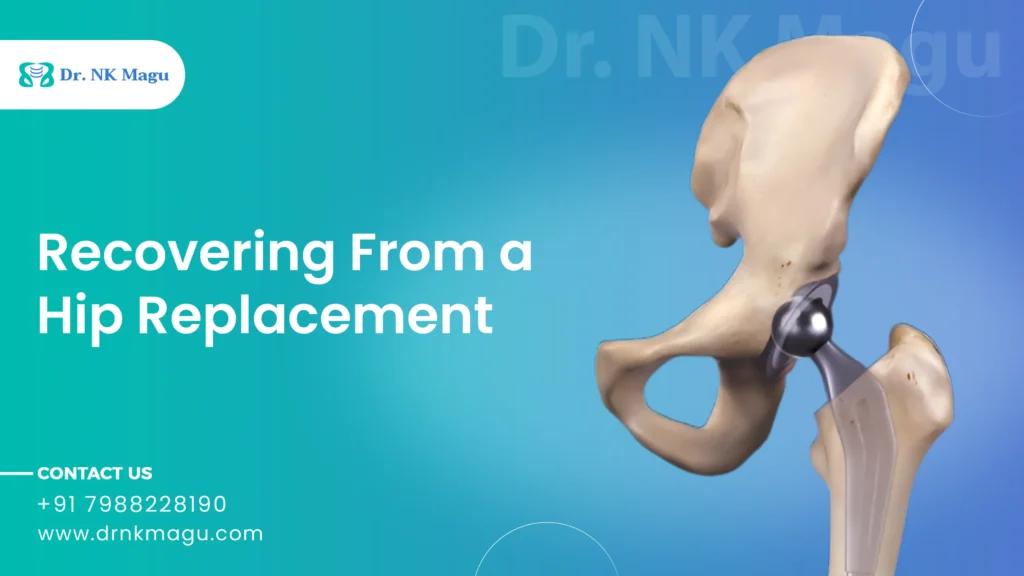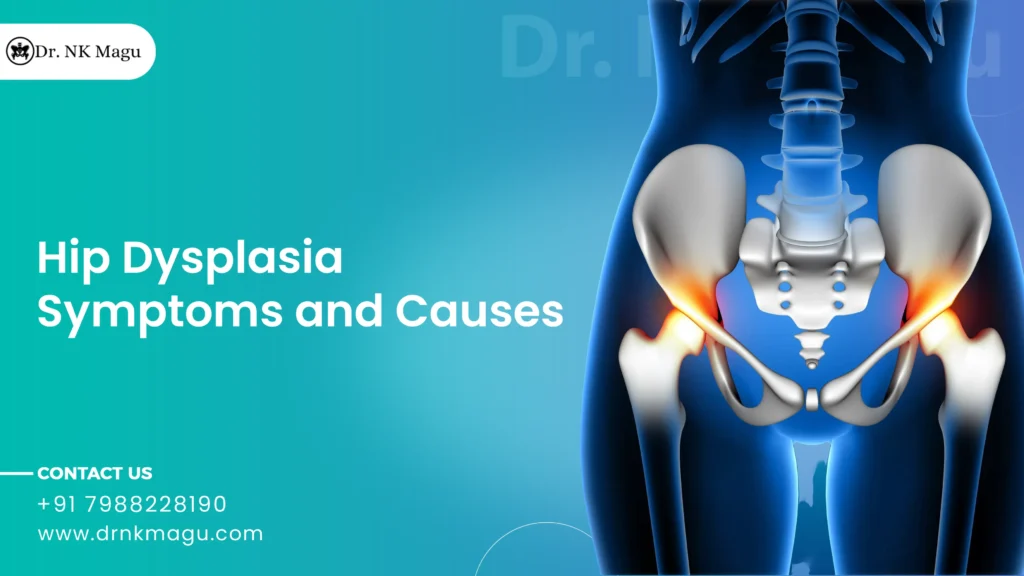Are you planning on having a hip replacement surgery? If so, you are likely to ask yourself how long it will be before you start walking without any difficulties. It is important to remember that recovery times differ from one patient to the other but there are specific principles that every individual should anticipate to adhere to after the surgery. Numerous factors have to be taken into consideration when it comes to aftercare whether it is for a common surgery or some complex surgery including hip replacement.
How should you prepare? What risks and difficulties do you anticipate? Would you require a caregiver? All of this requires coordination not just on the part of the health care team, but also of you and your family members. Dr. Narender Kumar Magu, an expert in minimally invasive and total joint replacements, shares tips about hip replacement recovery and rehabilitation. Now, let us try to explore what to anticipate after the operation of hip replacement.
How Soon Can One Return to Walking Without Avid After Hip Surgery?
The first question that comes into everyone’s mind after a hip replacement is: “When is the best time for walking?”
Total hip replacements are something that you would think must be the kind of operation where you spend a lot of time in bed after the operation and you do not, it is not quite as terrible as it might seem. Yes, the hip replacement allows you to walk soon after the surgery but you still have to be cautious. Every individual is unique, and the recovery rate differs from one patient to another, and the recovery period of total hip replacement is at least 2 weeks, and full recovery can be from six months to a year. Preparation and adherence to the directions given by the orthopedic surgeon can help in reducing the time it takes to heal fully after hip replacement surgery.
Recovery Period Depending on the Patient Recovery Time
Immediate Recovery Period
After the surgery is done, you may need to spend a few of the following days in the hospital as your hip recovers and acclimatizes to the implant. At this time physical therapy can be given alongside other medication including painkillers and possibly antibiotics in case of infection. It is expected that you will be able to get out of bed with some help on the first day or the second following the surgery and begin to use crutches or a walker on the third or the fourth day at the earliest.
Short-Term Recovery Period
The overwhelming majority of the patients are discharged within 4 to 7 days after the intervention. When at home, do not sit down, you should engage in light exercises as recommended by the doctor, like going for a walk or using a stationary bike. Depending on the extent of the body’s response to healing, one can stop using crutches or the walker, for 2-3 weeks after the surgery, and do things like driving and light work around 6 weeks after surgery. Thereafter, the healing process could take slightly longer based on the general health and morale of the wounded on each side.
Long-Term Recovery
The long-term healing period typically begins around 10 weeks after surgery and continues for the remainder of your life. Maintaining your hip joint’s strength and flexibility throughout this period requires you to keep up a regular exercise schedule. By 12 weeks post-op, you should be able to walk normally without the assistance of crutches or a walker, provided that you follow your doctor’s recommendations and take the appropriate safety precautions when exercising (e.g., utilizing handrails when climbing stairs).
Pre-Surgery Preparations
There is one thing that will prove very useful in the endeavor to fasten your hip replacement recovery and this is having your home adapted in a way that would minimize climbing, lifting, and bending. These may include:
- It is recommended to store any items that you frequently use above the waist.
- It is advised that you shift the bed to the first floor of your home.
- Just walk around your home and put a chair in every room, so when you are doing your chores you can sit on the chair to rest your hips.
- Keep frozen and ready-to-eat food in your pantry, canned foods, or meals that are packed for convenience.
- If you have a walker or wheelchair, carry a purse or pocketbook for things like your phone and wallet.
- This could also be alleviated by having a relative or a friend trusted to be with you at home. Nevertheless, make sure they understand your requirements and agree to help you with everyday stuff for several days or weeks.
Helpful: Hip Replacement Surgery Cost in India
What Factors can Influence the Duration of Time that is Taken in Terms of Recovery?
Some of the social factors that can slow down the recovery rate of a hip replacement surgery include; the patient’s age, other underlying health problems, and other social.
Hip replacement is mostly performed in the elderly as they are susceptible to various arthritic conditions. The ideal time to get a hip replacement is when one is 67 years and above.
The encouragement one receives from family and friends is very crucial, especially for the first two weeks upon returning home. This is because, for the first few days, they depend on others and are unable to meet those needs on their own.
Most of the patients take some time to get back on their feet, and they can do their daily activities. This makes them believe that they are okay to the extent of ceasing their physiotherapy and other exercises that help to build up the muscles. So it might affect your overall recuperation in some way.
The patient has to be more cautious in the first few days of walking, especially during washing, getting in and out of bed, moving around the washroom, and some ways of walking such as bending, sitting, standing, twisting around, etc.
After getting the hip replacement surgery, the patient may feel some degree of pain and stiffness which are quite normal, just have to remember to do as much walking as possible as it helps in decreasing the level of pain and stiffness. And another important thing that should not be forgotten is the postoperative appointment with the hip replacement surgeon. Consultation is very crucial to learn the developments of your rehabilitation.
The time required to recover after hip replacement surgery is unique for every human being and it cannot be compared with other operations. Still, it is important to adhere to the post-surgical advice of your orthopedic surgeon, as well as consume a healthy diet, perform recommended exercises as advised by your physical and occupational therapists, monitor for any potential complications, and undertake appropriate rehabilitative activities that may take a few months to a whole year.
Dr. Narender Kumar Magu is an expert in the field of orthopedic surgery who has extensive practical exposure while handling cases related to hip replacements because of arthritis or other age-related bone and joint disorders. He understands that when one has to go through such a sufficient surgical process like hip replacement it can be stressful which is why he makes sure to make his patient’s journey as comfortable and safe as possible from the preoperative stage, surgery, and physical rehabilitation for his patient to walk again without any problems as soon as possible!














